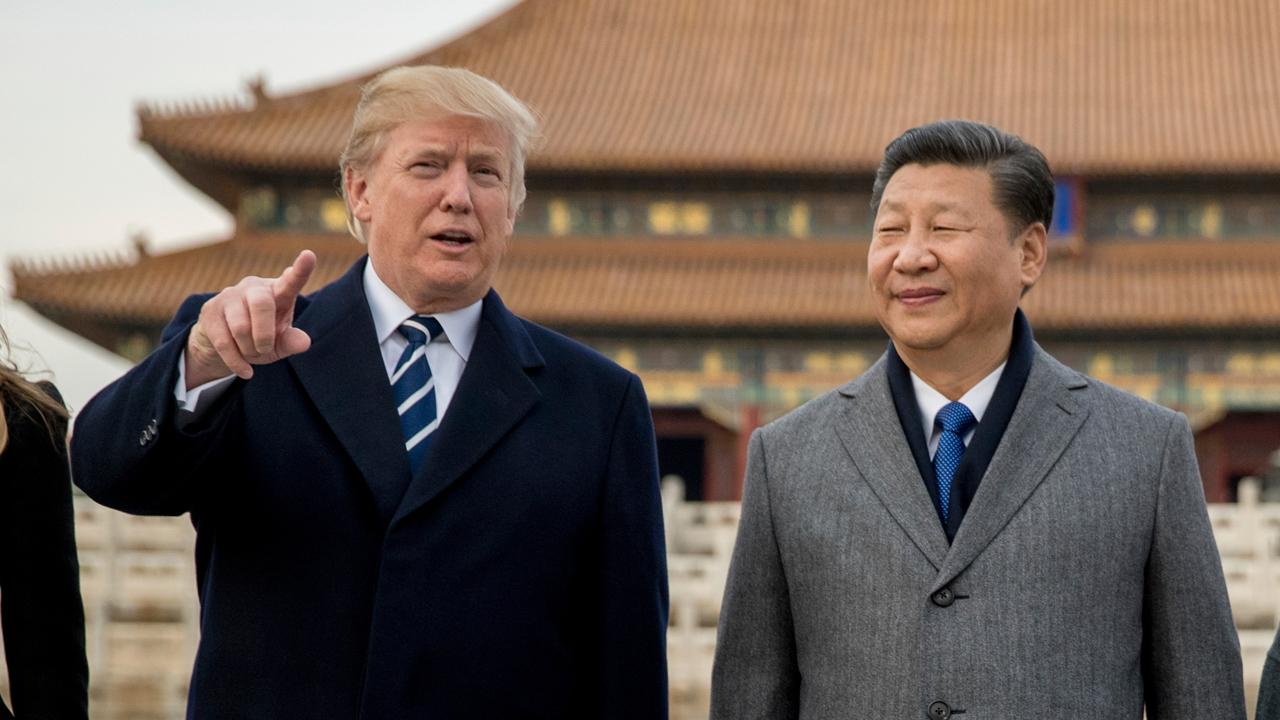Rare earth minerals, explained: What’s their role in the US-China trade war?
Rare earth minerals are key components of smart phones, jet engines and cameras -- and soon they could be at the forefront of the U.S.-China trade war.
On Wednesday, amid inflamed tensions with the U.S., Beijing issued a thinly veiled threat that it’s preparing to target exports of rare earth minerals, a crucial component in the U.S. tech sector, two weeks after President Trump blacklisted the Chinese telecom firm Huawei with an executive order, escalating the trade war.
Here’s what you need to know about rare earths, as they become the newest bargaining chip in the U.S.-China trade war.
What are rare earth minerals?
Rare earths are a group of 17 metals that have been deemed critical by the U.S. Geological Survey for multiple sectors in the U.S., including national defense and technology. They’re used to produce a number of goods, including smart phones, cameras, DVD players, wind turbines, oil refineries, jet engines, anti-missile defense systems, satellites and nuclear rods.
While not actually rare (they’re found in the U.S., but they’re difficult to mine) China accounts for more than 90 percent of global production, according to the U.S. Geological Survey, even though it only controls about one-third of the world’s rare earth deposits.
Why is China targeting them?
Rare earths are another form of leverage in the ongoing, year-long tariff war between the U.S. and China. Tensions between the two countries began to heat up again several weeks ago, when Trump increased the tariffs imposed on $200 billion of Chinese goods to 25 percent from 10 percent. China retaliated by hiking its tariffs on about $60 billion worth in U.S. imports.
Now, state-run media in China is hinting that rare earths could be the next battlefront in the trade war. The U.S. is heavily dependent on China for the minerals, relying on it for about four of every five tons of rare-earths imports between 2014 and 2017. Last year, the U.S. purchased $160 million in rare earths.
What US industries (and consumer products) could be affected?
It’s difficult to pin down which companies and products would be most affected by a crackdown, because rare earths are so instrumental across the board. However, companies like Apple, which is dependent on rare earths for certain parts like cameras and speakers, defense manufacturer Raytheon and Tesla could suffer, according to Barron’s.
What happens if China cuts rare earths exports?
The need for rare earth metals cuts across most industries in the U.S., so what happens if China does crackdown on its sales to the U.S.? While it’s not entirely clear, the Department of Defense is currently seeking new federal funds to increase domestic production of rare earth minerals and reduce dependence on China, according to Reuters.
The U.S. has one rare-earth mine that’s currently in operation and it’s based in California.
Is China definitely limiting rare earths sales?
No. China has not explicitly said that it will do so, but state-run Chinese media has strongly implied that the government plans to do so.
In commentary published on Wednesday titled “United States, don’t underestimate China’s ability to strike back”, the People’s Daily -- which is the official newspaper of the Communist party -- addressed the United States’ “uncomfortable” dependence on rare earths from China.
“Will rare earths become a counter weapon for China to hit back against the pressure the United States has put on for no reason at all? The answer is no mystery,” it said. “We advise the U.S. side not to underestimate the Chinese side’s ability to safeguard its development rights and interests. Don’t say we didn’t warn you!”




















